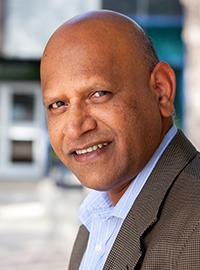High Power Density Superconducting Cables for Electric Aircraft and Ships – Opportunities and Challenges
Second Generation High Temperature Superconducting (2GHTS) power systems are being developed for a variety of applications including the electrical power grid, industrialapplications, data centers, high energy physics, electric ships, and electric aircraft. There are some common requirements and design features for HTS devices for all the applications.However, the design requirements for electric transportation applications such as electric aircraft and electric ships are more stringent in terms of gravimetric and volumetric power densities. The power density demands require that the HTS generators and motors in electric transportation applications operate at temperatures between 20 and 50 K to compensate for the reduction in critical current density and AC losses under the substantial magnetic fields present in the rotating machines. HTS power distribution cables, however, can achieve high enough current densities when operated at higher temperatures of 40 - 70 K. The primary challenges with power cables that carry multiple kA are the cable terminations, electrical insulation, and cryogenic interfaces. Innovative compact designs are needed to address the challenges in the dielectric and cryogenic thermal designs. We at the Center for Advanced Power Systems (CAPS) are collaborating with other academic institutions and several small businesses to address the challenges of AC losses in HTS rotating machines and making the interfaces (terminations) for HTS cable systems compact. We have ongoing work on cryogenic dielectrics and cooling systems for HTS applications for electric transportation applications. The Presentation will focus on the ongoing research and recent collaborative accomplishments in HTS power cables and other related areas.
Date and Time
Location
Hosts
Registration
-
 Add Event to Calendar
Add Event to Calendar
- 154 Summit Street, Newark, NJ 07102
- NJIT
- Newark, New Jersey
- United States 07102
- Building: ECEC
- Room Number: 202
- Click here for Map
- Contact Event Hosts
-
Dr. Ajay K. Poddar, Email:akpoddar@ieee.org
Dr. Edip Niver, email: edip.niver@njit.edu
Dr. Durga Misra, Email: dmisra@ieee.org
Dr. Anisha M. Apte, Email: anisha_apte@ieee.org
- Co-sponsored by IEEE North Jersey Section
Speakers
 Sastry Pamidi of FAMU-FSU College of Engineering
Sastry Pamidi of FAMU-FSU College of Engineering
High Power Density Superconducting Cables for Electric Aircraft and Ships – Opportunities and Challenges
Second Generation High Temperature Superconducting (2GHTS) power systems are being developed for a variety of applications including the electrical power grid, industrial applications, data centers, high energy physics, electric ships, and electric aircraft. There are some common requirements and design features for HTS devices for all the applications. However, the design requirements for electric transportation applications such as electric aircraft and electric ships are more stringent in terms of gravimetric and volumetric power densities. The power density demands require that the HTS generators and motors in electric transportation applications operate at temperatures between 20 and 50 K to compensate for the reduction in critical current density and AC losses under the substantial magnetic fields present in the rotating machines. HTS power distribution cables, however, can achieve high enough current densities when operated at higher temperatures of 40 - 70 K. The primary challenges with power cables that carry multiple kA are the cable terminations, electrical insulation, and cryogenic interfaces. Innovative compact designs are needed to address the challenges in the dielectric and cryogenic thermal designs. We at the Center for Advanced Power Systems (CAPS) are collaborating with other academic institutions and several small businesses to address the challenges of AC losses in HTS rotating machines and making the interfaces (terminations) for HTS cable systems compact. We have ongoing work on cryogenic dielectrics and cooling systems for HTS applications for electric transportation applications. The Presentation will focus on the ongoing research and recent collaborative accomplishments in HTS power cables and other related areas.
Biography:
Sastry Pamidi received his Ph.D. in 1992 from the University of Bombay, India. He is currently a professor and serving as the Chair of the Department of Electrical and Computer Engineering at FAMU-FSU College of Engineering (www.eng.famu.fsu.edu). He is the Associate Director of the Center for Advanced Power Systems at Florida State University (www.caps.fsu.edu), where he leads a multidisciplinary research group focusing on superconducting power applications and cryogenic dielectrics. His research interests include high power density superconducting devices, cryogenic dielectrics, advanced electrical insulation systems, advanced AC loss measurements, and applied cryogenics related to superconducting power applications. He has established advanced research facilities and testbeds to characterize superconducting cables cooled with gaseous helium. He has established a high voltage engineering laboratory specializing in the cryogenic dielectric characterization of insulation materials and designs for superconducting power applications. He has collaborated with several research groups and delivered invited presentations at many international conferences. He published three book chapters and 200+ papers. He has active collaborations with superconducting wire manufacturers and several small businesses. He has served on the technical committees of many international conferences. Dr. Pamidi is active in IEEE and is the Chair of the Power and Energy Chapter of the local IEEE Section. He is a Fellow of the Cryogenic Society of America.
Email:
Address:Department of Electrical and Computer Engineering, FAMU-FSU College of Engineering, Tallahassee, United States, 32310-6046
Agenda
Event Time: 4:45PM to 6:30 PM
Venue: Kiernan Conference Room (ECE 202), ECEC, NJIT, Newark
Refreshments: 4:45 PM
Talk at 5:00 PM
Seminar in ECE 202 All Welcome: There is no fee/charge for attending IEEE technical seminar. You don't have to be an IEEE Member to attend. Refreshment is free for all attendees. Please invite your friends and colleagues to take advantage of this Invited Distinguished Lecture.

